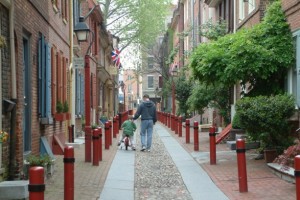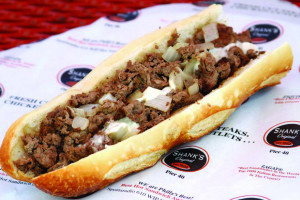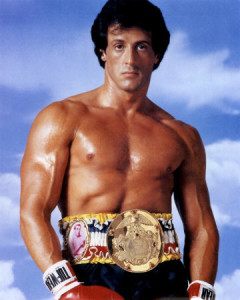Quick Quiz:
What city in the U.S. can claim the first American:
- Public school (1698)
- Residential street (1702)
- Library (1731)
- Independent hospital (1731)
- Fire-fighting company (1736)
- Meetings of the U.S. Congress (1774)
- First university (1779)
- Public Bank (1780)
- Daily Newspaper (1784)
- Stock exchange (1790)
- Circus (1793)
- Manned air flight (1793)
- Art museum and school (1805)
- Carbonated water (1807)
- Theater (1809)
- Natural history museum (1812)
- African American university (1837)
- Advertising agency (1869)
- Zoo (1874)
- Merry-go-round (1867)
- Ice cream soda (1876)
- Cafeteria-style restaurant (1902)
- Funeral home (built as such) (1905)
- Thanksgiving Day parade (1919)
- Totally air conditioned building (1932)
- Cheesesteak (1932)
- Girl Scout cookie sale (1932)
- Fully electronic computer invented (1946)
- Slinky (1948)
- Polio vaccine (1960)
Not to mention (though I’m mentioning them anyway): the first U.S. Mint, the first department store, the first botanical garden, the first opera house, and the world’s first modernist skyscraper…
By now — cheesesteaks should be a dead giveaway — you’ve probably guessed Philadelphia, Pennsylvania, and you would be right.
I came across this list yesterday and it reminded me of just how dynamic the city of Philadelphia has been over the years, all the way back to its founding in 1682 by William Penn.
Then and Now
It’s probably best known for its role in the late 18th century Revolutionary War era: after giving birth to the Continental Congress, the Declaration of Independence, and the U.S. Constitution, Philadelphia served as the first U.S. capital from 1790 to 1800.
In those days, it was the second-largest city after London in the English-speaking world and the center of American culture and commerce. Benjamin Franklin called it home (and, in fact, set up the first lightning rod designed to protect a building in 1752).
A few decades ago, though, Philadelphia’s reputation had slipped like a Slinky wending its way down a staircase. Its downtown had grown shabby, its name was a punchline for comedians (“First prize: a week in Philadelphia! Second prize: two weeks in Philadelphia!), its sports fans were known for booing their grandmothers, and its most famous cultural icon was a punch-drunk pug from the movies named Rocky Balboa.
But like Rocky — who survived enough wallops for ten boxers — Philadelphia has come back like a champ.
The colonial-era historic district — featuring Independence Hall and other monuments — has been restored, the Delaware River waterfront is booming, the restaurant and nightclub scene is hot, and the arts are thriving.
Philadelphia’s entire downtown City Center is quite compact and laid out in a grid for easy navigation; it’s nicely framed by the Delaware and Schuykill rivers and four public squares.
A bit farther out, 8,900-acre Fairmount Park straddles the Schuykill River and is home to historic mansions, the Philadelphia Zoo, and the Philadelphia Art Museum. The latter’s neoclassical structure is probably more recognized for its imposingly high steps — where Rocky Balboa completed a triumphal training run — than for its world-class art and design collections inside. (But don’t miss them.)
For cheeseteaks and other local “Philly ” favorites, head to the colorful Italian Market area in South Philadelphia, where various purveyors battle it out for the heartburns and minds of sandwich and soft pretzel connoisseurs.
You can travel around much of the greater Philadelphia area by SEPTA commuter train, and if you have a Medicare card (for Americans 65 and older) you can go anywhere on SEPTA for just $1 — allowing baby boomers of a certain age to buy an extra cheese steak should they choose.
When W.C. Fields said, “Here lies W. C. Fields. I would rather be living in Philadelphia,” he was joking about what he would put on his gravestone, and it was widely considered a dig at the city of his birth.
I suspect that if Fields were to return to Philadelphia today, he would be first line for a cheese steak or, perhaps more likely, ready to quaff a brew (made from a recipe of Thomas Jefferson’s) at the reconstructed 1773-era City Tavern, where George Washington and Paul Revere once drank and dined.
Nearby, a slew of cutting-edge restaurants have propelled Philadelphia’s culinary reputation far beyond cheesesteaks and pretzels. It’s a microcosm of the city itself: a blend of the hip and historic perhaps unmatched in the country.
I can’t guarantee you that Philly sports fans won’t boo their grandmothers, though. Some things never change.
Readers: You can subscribe to my blog and get notification of every post by simply typing in your email address and clicking on the blue Subscribe button or downloading my free report, How to Ride the Coming Wave of Boomers. Thanks!















Leave a Reply